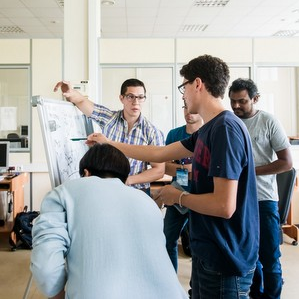At Samara University XIII International summer space school “From mission to the project of nano-satellite” finished its work. The school is devoted to two anniversaries: 60 years from the launch of the first satellite “Satellite-1” and 75 years of Samara University.
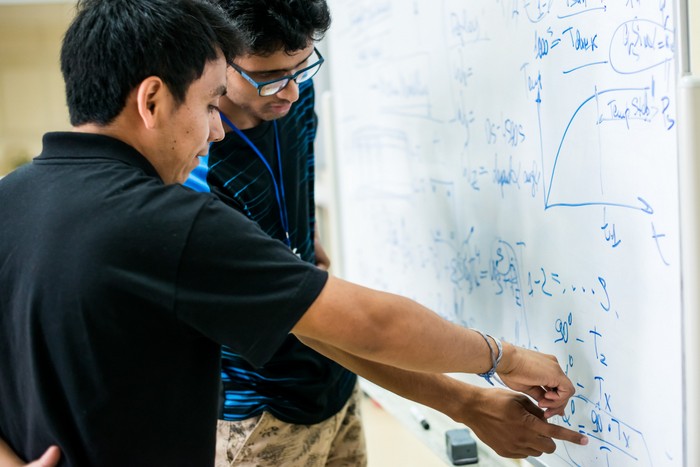
During its existence the summer space school turned into a powerful educational project of international level and a place for generation and development of perspective ideas in the sphere of satellite production. The popularity of space school in the world is growing; the number of applications provides evidence for this. In 2017 170 international students and post-graduate students competed for education at school. In parallel with this the requirements of the contest are increasing. As a result of a tough competition 40 people from 14 countries have become participants of the space school.
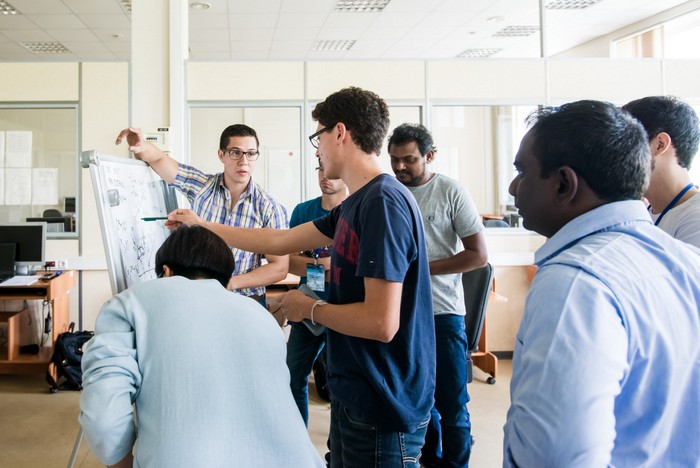
International students having arrived at Samara University marked that the system of education in the Russian university is more productive than in other countries as the range of the received knowledge allows holistic understanding of an object under study alongside the place, role and interaction of the object in the system.
“The greatest impression on me was produced by the approach to education in the summer space school. It is broad, versatile and not narrow and specific as, for example, in Europe. There separate directions in the fields of rocket engines or satellites, for example, are taught. And here we learnt the satellites holistically, not only on their own, but in interaction with the other systems. Holistic understanding has appeared and it is very precious”, - Anhel Geracia (Mexico), participant of the school, emphasized.
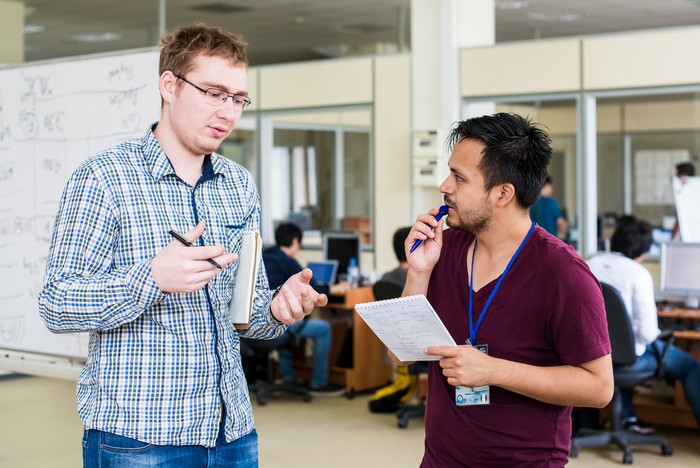
One of the distinguishing peculiarities of the school is practical team work over group projects.
“This year the summer school participants worked over three variants of nano-satellites projects: for developing perspective inter-satellite technologies, for automatic identification of marine vessels and identification of harbingers of earthquakes and tsunami, - Igor Belokonov, head of the Inter-University Department of Space Research told. – Initiative from the side of space school participants is being welcome. For example, this year the students got the idea of creation of a telescope-nano-satellite”.
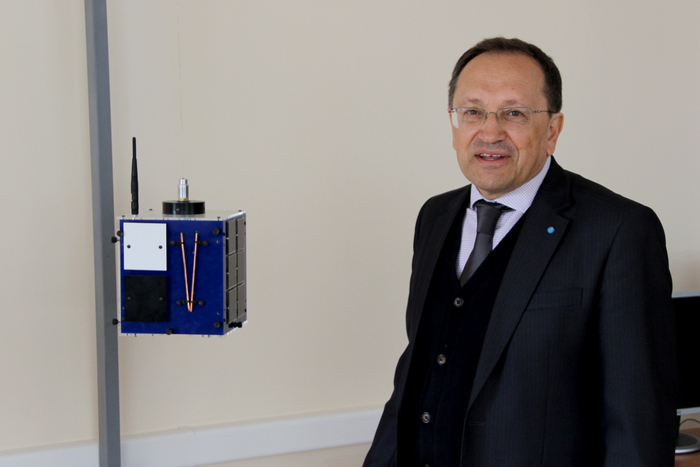
In the course of school work several joint projects for realization were discussed. This is the joint project of Samara University with ISAE-SUPAERO (Toulouse, France) on developing the group flight of two nano-satellites, the project of Russian and Sri-Lankan nano-satellite as well as the discussion of the cooperation programme with the university of the Dominican Republic, which was represented in space school by Prof. Gorki.
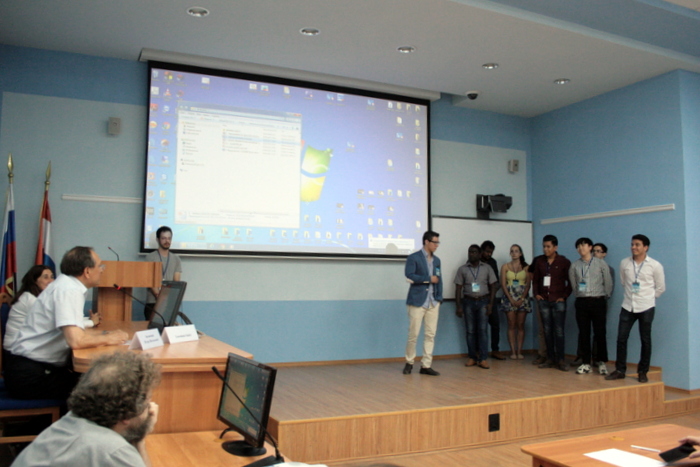
It should be mentioned that for the first time at summer school the defense of team projects took place in the presence of the participants of the second Russian symposium for nano-satellites RusNanoSat-2017, which was held at the same time by the Inter-University Department of Space Research.
Apart from professors and lecturers of Samara University three invited professors read lectures at summer space school: deputy general director on science of JSC “Russian Space Systems” Prof. Alexander Romanov, head of the sector of the Keldysh Institute of Applied Mathematics Prof. Michael Ovchinnikov and Prof. Loredana Santa of the University of Rome Tor Vergata.
“Two moments produced the greatest impression on me. The first one was people. We were taught by the very knowledgeable professors and famous lecturers, from whom students all over the world learnt. This is a wonderful opportunity to study in a team. It should be noted that people here are wonderful, they helped me despite my ignorance in Russian”, - Vishal (India) shared his impressions. – Secondly, this is information, scholar experience that I have got. The seminars and reports of famous lecturers, professors were very useful. The lecture by Loredana Santa was very interesting. I am glad that I have found ideas at summer school lectures that I will be able to use in the future in my diploma and further research work as I want to develop exactly in the direction of nano-satellites creation”.
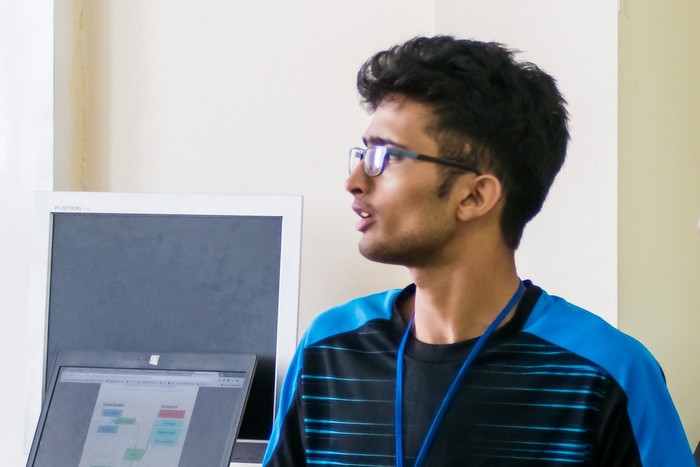
The students taught at summer space school have highly appreciated the level of the acquired knowledge, experience of team project work, opportunities of scientific collaboration and are going to recommend them to their colleagues and course mates.
“I have visited Samara for the first time, want to study in MAI. In my opinion, Samara is better than Moscow not only because of the weather, but of the education at summer school as well. Here a special atmosphere reigns, here is team work. – Un Son Uk (South Korea) told. The summer school gave me an opportunity to communicate with people from different countries. When I arrived here, I didn’t know how the space industry in other countries is developing, for example, in Mexico, Brasil, Japan, over what they are working. Now I have this understanding. In MAI I study at the direction “rocket design and construction” and know everything about rockets, but I lacked information about such useful load in a rocket as nano-satellites, as it is not my specialization, but the task I have set before me is fulfilled. I will recommend my colleagues this summer school; this is a very good chance to enhance the level of one’s knowledge and to get acquainted with the likeminded people from different countries”.
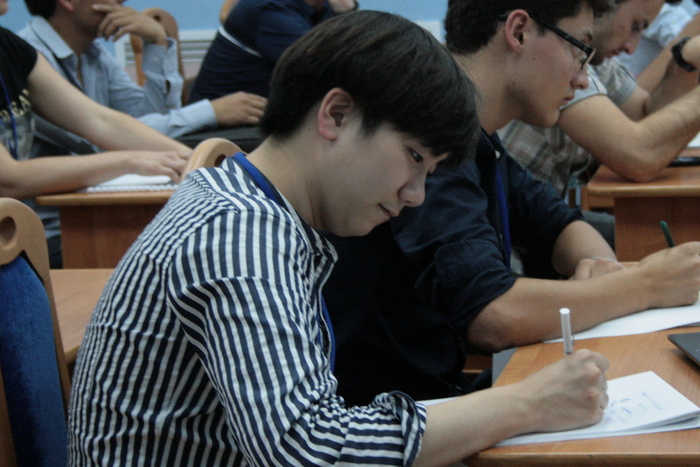
It should be added that in the second Russian symposium for nano-satellites with international participation RusNanoSat-2017 representatives of Samara University, Ulyanov and Amur State Universities, Moscow State Technical University, St. Petersburg State University of Aerospace Instrumentation, Siberian State Aerospace University, Kazan Federal University, Skobeltsyn Institute of Nuclear Physics Lomonosov Moscow State University, Keldysh Institute of Applied Mathematics RAS, Institute of Space Research RAS, Institute of Fine Mechanics Problems RAS, JSC “Russian Space Systems”, JSC “RTI”, TSNIIMASH, RSC “Progress”, JSC “Astronomickon” and Samara branch of Research Institute Radio took part.
45 reports were present at symposium, the authors and co-authors of which along with the Russian scientists were scholars from Italy, China, and Peru.
Photo: Andrey Kiselev (photo club “Illuminator”)







